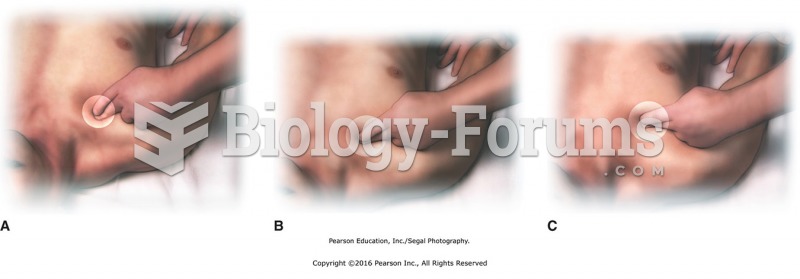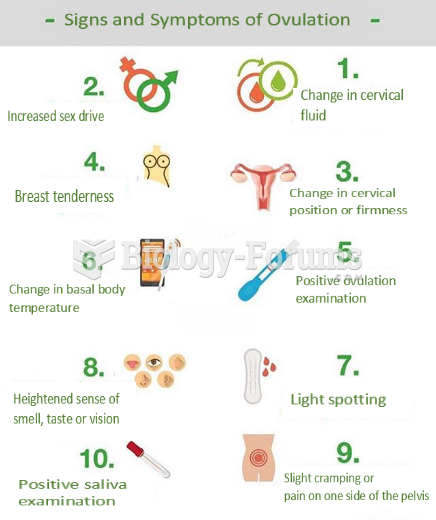|
|
|
According to research, pregnant women tend to eat more if carrying a baby boy. Male fetuses may secrete a chemical that stimulates their mothers to step up her energy intake.
Blood in the urine can be a sign of a kidney stone, glomerulonephritis, or other kidney problems.
Asthma cases in Americans are about 75% higher today than they were in 1980.
An identified risk factor for osteoporosis is the intake of excessive amounts of vitamin A. Dietary intake of approximately double the recommended daily amount of vitamin A, by women, has been shown to reduce bone mineral density and increase the chances for hip fractures compared with women who consumed the recommended daily amount (or less) of vitamin A.
Nearly 31 million adults in America have a total cholesterol level that is more than 240 mg per dL.







